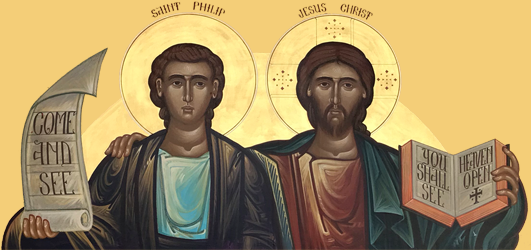Leviticus 8:30
“Moses then took some of the anointing oil and some of the blood on the altar and sprinkled it on Aaron and his garments, and on his sons and their garments with him; and he sanctified Aaron and his garments, and his sons and their garments with him.” (OSB)
As St. Paul says, According to the law almost all things are purified with blood (Heb 9:22). This is the principle we observed last week with regard to the “Sin Offering.” In the sacrificial system, particularly the Mandatory sacrifices, God makes gracious provision for the continual (ritual) cleansing and purification of both the people of Israel and the Holy Tabernacle in which God dwells—so that Israel can be “holy as I the Lord your God am Holy” (Lev 20:7).
To facilitate this system of worship, God calls from among Israel certain people—the descendants of Aaron from the tribe of Levi—to act as special representatives, to perform priestly service by bringing Israel’s offerings to God and conveying God’s presence with and forgiveness to His people. By virtue of their calling and duties, the priests were held to a higher standard of ritual purity—or rather, the standard which the common Israelite, and even the priest himself, were incapable of fully attaining because of their own weakness, sin, and death (Heb 7:23-28).
As St. Cyril of Jerusalem notes (Catechetical Lectures 18.24), we see here in Leviticus 8 the whole “church” assembled at the inauguration of the Levitical Priesthood, involving a “baptism” (Lev 8:6) and a double anointing with oil and blood. The anointing—or rather, sprinkling—with blood harkens back to the Covenant ceremony of Exodus 24 where all Israel was doused with the Blood of the Covenant. Israel is after all a royal priesthood (Exod 19:6), whose purification and dedication to God—and death to themselves—is signified in the blood.
The Aaronic priesthood participates in the general priesthood of Israel, and presents it back to Israel in iconic form: that is, the Levitical priest is, in their special dignity and function, is an image of what all of Israel is in relation to God and the nations. This special charism (“grace”) of the priesthood is indicated in the anointing with the chrism (“oil”), thus making the priests little “christs” (“anointed ones”). For as long as the priest ministers, he will be wearing vestments stained with the oil and blood of his ordination.
In the Church, these Old Covenant shadows are fulfilled in the eternal high priesthood of Christ, Who as the divine-human King-Priest “according to the order of Melchizedek” (Ps 109:4), offers the eternal sacrifice of Himself—and us in and with Him—to God the Father on the heavenly altar. The Church has always understood its ongoing liturgical-sacramental worship, and the structure and polity of the Church—the offices of bishop, priest, deacon, and the laity—in terms of the eternal priesthood of Christ, and thus as transformed fulfillment of the Old Covenant pattern.
St. Paul refers to himself as a priestly minister (leiturgon) “of Jesus Christ to the Gentiles, ministering as a priest the gospel of God, that the offering of the Gentiles might be acceptable, sanctified by the Holy Spirit” (Rom 15:16). The early church writer, Origen, refers to all twelve of “our apostles” as “[Christ’s] priests” (Hom. Lev. 6.3.3). And St. Clement of Rome, writing around AD 95, admonishing the church in Corinth to perform their worship in the divinely prescribed manner, says:
For to the high priest [i.e., the bishop] the proper services have been given, and to the priests [i.e., presbyters] the proper office has been assigned, and upon the Levites [i.e., deacons] the proper ministries have been imposed. The layman is bound by the layman’s rules. Let each of you, brethren, offer the Eucharist to God in his proper order, maintaining a good conscience, not overstepping the designated rule of his ministry, but acting with reverence. (1 Clement 40:5-41:1)
~ By Reader Justin Gohl

